Animals
-
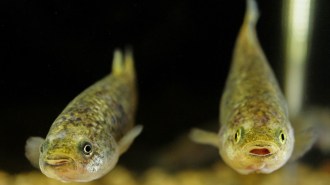 Animals
AnimalsAfter eons of isolation, these desert fish flub social cues
Pahrump poolfish flunked a fear test, but maybe they’re scared of other things.
By Susan Milius -
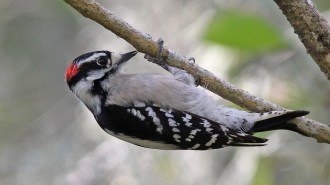 Animals
AnimalsDrumming woodpeckers use similar brain regions as songbirds
Woodpeckers drum on trees and other objects using brain regions similar to those that songbirds use to sing, suggesting a common evolutionary origin for the complex behaviors.
-
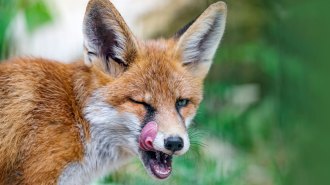 Animals
AnimalsVideo shows the first red fox known to fish for food
Big fish in shallow water are easy pickings for one fox — the first of its kind known to fish, a study finds.
By Freda Kreier -
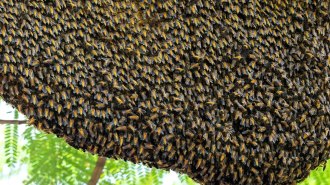 Life
LifeHere’s what triggers giant honeybees to do the wave
A new study is revealing details about what sets off a defensive behavior in open-nesting bees known as shimmering.
By Ananya -
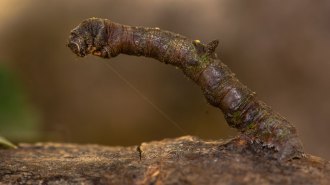 Life
LifeNot all camouflage is equal. Here are prey animals’ best options
When prey masquerade as innocuous objects in the environment, they slow detection from predators by nearly 300 percent.
By Jake Buehler -
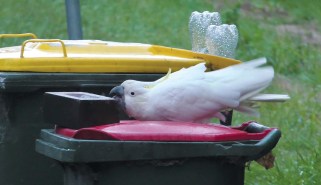 Animals
AnimalsNeed to keep cockatoos out of your trash? Try bricks, sticks or shoes
In Sydney, humans may be in an escalating arms race with cockatoos. People are trying new tools to keep the pesky parrots out of their trash.
-
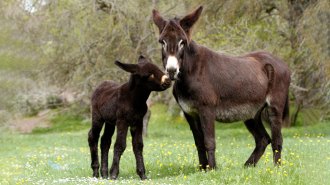 Animals
AnimalsDNA reveals donkeys were domesticated 7,000 years ago in East Africa
When and where donkeys were domesticated has been a long-standing mystery. DNA now reveals they were tamed much earlier than horses.
By Freda Kreier -
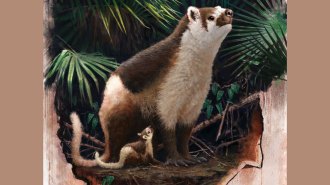 Paleontology
PaleontologyLiving fast may have helped mammals like ‘ManBearPig’ dominate
Staying in the womb for a while but being born ready to rock may have helped post-dinosaur mammals take over the planet.
-
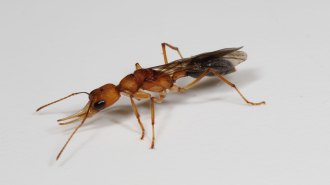 Animals
AnimalsA clever molecular trick extends the lives of these ant queens
Ant queens typically live much longer than their workers by blocking a key part of a molecular pathway implicated in aging, a new study suggests.
-
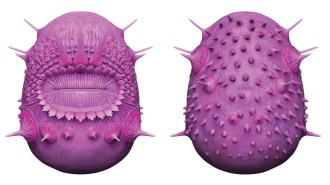 Paleontology
PaleontologyThis bizarre ancient critter has been kicked out of a group that includes humans
A wee sea creature without an anus was thought to be the oldest deuterostome. New imaging showing it had spines led to its reclassification.
By Anna Gibbs -
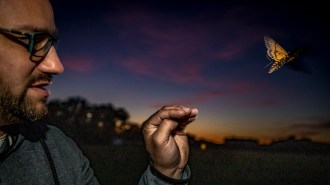 Animals
AnimalsHow death’s-head hawkmoths manage to fly straight for miles in the dark
By tailing death’s-head hawkmoths in an airplane, scientists have found that the nocturnal insects appear to navigate using an internal compass.
By Anil Oza -
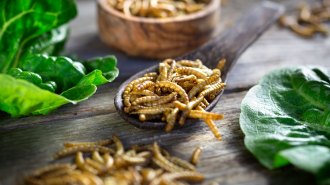 Science & Society
Science & SocietyA new seasoning smells like meat thanks to sugar — and mealworms
A spoonful of sugars could help cooked mealworms go down more easily, a potential boon for the planet.
By Anil Oza